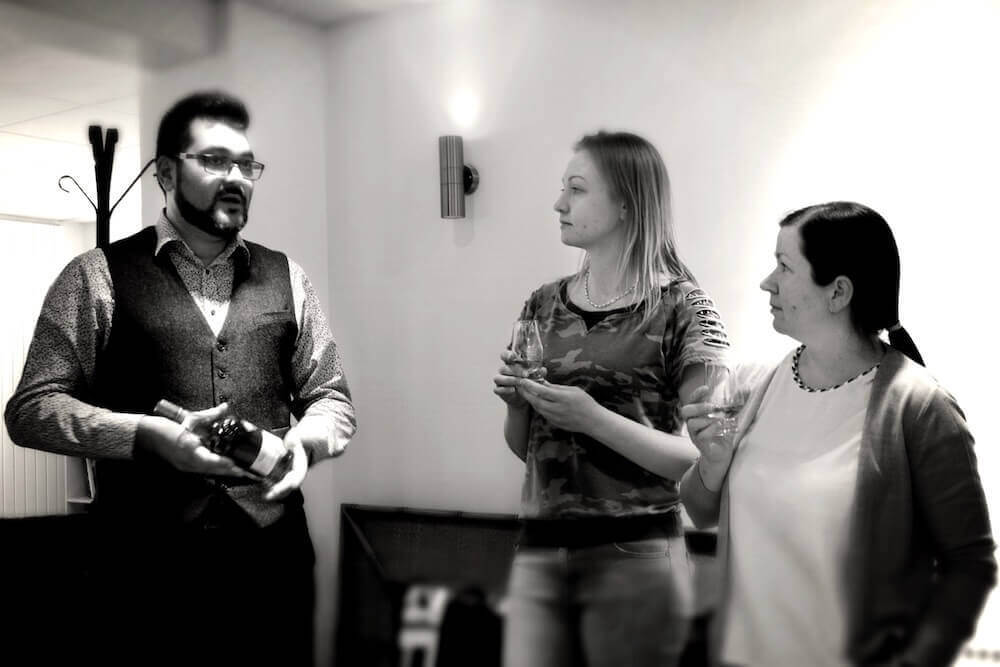Question
“I need to meet a lot of people in my job. What’s a good way to gain professional social English skills?
The Right Environment
You need to improve at socialising in English for your job.
The good news is this doesn’t need to be sitting in an English classroom enacting fake role-play situations.
That’s cringe for professional adults!
Traditional language school do not teach English for socialising well as they cannot bring real life into the classroom.
To master socialising in English you need to get out of the classroom and have real-life encounters with a variety of people in friendly, semi-formal contexts.
In other words, actually get socialising!
The Blue Noun Language Hub Solution
Here at Blue Noun, we have a unique way of getting you talking.
We have built a network of Local Artists and Makers who want to welcome you into their space, tell you about their work – and ask you about yours.
Let conversations flow with interesting people.
This blog gives you tips for improving your English for Socialising skills.

Soft Skills
In English, we use the term ‘soft skills’ to describe the personal attributes that enable someone to interact effectively and harmoniously with other people.
The good news is such skills generally transcend language differences!
Your rapport with other people goes way beyond words and language.
You don’t need perfect English to communicate attractively, and with warmth and friendship.
Only it’s not always easy to believe statements like this.
Speaking English makes you feel vulnerable. Imperfection can stop your flow.
It’s more often INSECURITY over speaking English blocking professional social English skills – than the English skills themselves!
Practising builds experience and confidence – as well as any technical language skills you need.
In English, the greatest technical skill you need for professional social English skills is awareness of tone.
The Right Tone
One of the trickiest parts of socialising professionally in English is knowing the right tone of language to use.
Many languages have clear differences between formal and informal language set within their structure.
English is trickier.
For example, in more formal situations we use different language to ask for something. Compare, ‘I wonder if you could possibly pass me the salt‘, and ‘hand me that salt, please’.
The first example is formal English. The second is informal.
The professional social English skills you need likely sit in between these extremes.
How Formal Do You Need to Be?
Find out what your Company Culture is.
In general, if you are too formal you appear unfriendly, whereas too informal and you risk sounding rude.
Different professions vary in tone. Are you communicating with lawyers? Then you’ll need formal language.
If you are talking with IT specialists then you’ll need polite but less formal English.
If you are communicating peer to peer then you’ll likely use different language than with a superior.
Someone you already have a report with is different from addressing a stranger.
How to Practice Using Different Tones in English?
An English learner can practice this across a range of social contexts.
If you cannot travel to an English-speaking country, then watch TV/listen to the radio for the different tones being used.
What’s the Best Way to Practice Social English?
The best way to learn social English skills is to practice them within a similarly formal context.
Attention: that’s not a family homestay setting.
That is a relaxed but professional space.
That’s why we take all our guests into artist studios and to Meet the Makers!
How to Improve at Socialising in English
You best build social skills in English through real experiences.
Get talking whenever you can and practice across a wide range of contexts.
Don’t avoid conversations because of your English level!
Use all the speaking opportunities you can find and you’ll quickly improve!
Further Information
BBC Bitesize English has more about tone.


